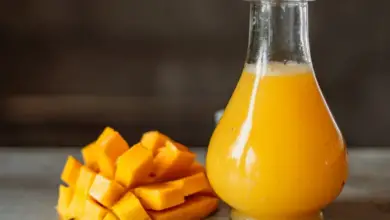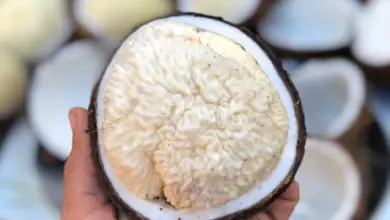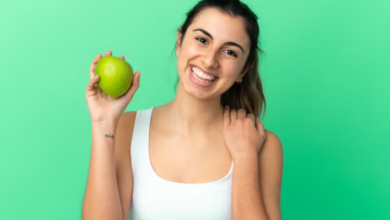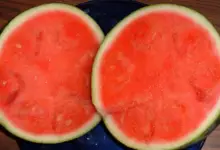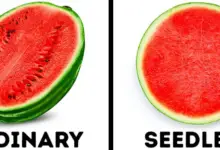Are Dried Bananas Good For You? – Exploring The Health Benefits
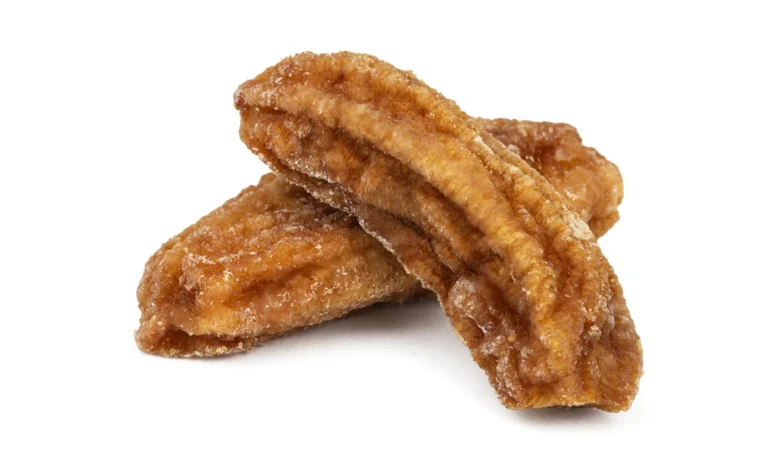
Are dried bananas as beneficial as other forms of the fruit? Find out the facts behind the health benefits of dried bananas as we explore their nutritional profile.
Whether you’re looking for a snack on the go or a sweet treat to add more variety to your diet, dried bananas are a great option. In this blog post, we’ll get to know these chewy snacks – reviewing both their nutrition profile and potential health benefits.
Table of Contents
- What Are Dried Bananas?
- Nutritional Information Of Dried Bananas
- Comparison with fresh bananas
- Serving size and calorie count
- Health Benefits of Dried Bananas
- Risks and Precautions
- Culinary Uses of Dried Bananas
- Buying and Storing Dried Bananas
- FAQs
- Is dried banana full of sugar?
- Are dried banana chips a healthy snack?
- Is dry banana good for weight loss?
- What are the benefits of drying bananas?
- Wrapping Up
What Are Dried Bananas?
Dried bananas are a nutritious, shelf-stable form of the fruit that can be found in many grocery and health food stores.
They are made by slicing the bananas into thin pieces or leaving them whole and subjecting them to low heat in order to evaporate most of their moisture. This keeps the flavor and nutritional content intact while greatly enhancing their shelf-life.
Dried bananas are versatile and can be enjoyed as a snack on their own or added to recipes for extra flavor and texture. They are available in packages or in bulk and are a convenient way to get your banana fix.
Nutritional Information Of Dried Bananas
Dried bananas are a nutrient-dense food with many benefits:
- Calories: 105 per 1 oz (28 g) serving
- Carbohydrates: 27 grams
- Fiber: 3 grams
- Protein: 1 gram
- Fat: 0 grams
- Potassium: 233 mg (6% of the daily recommended intake)
- Vitamin C: 2% of the daily recommended intake
- Vitamin B6: 6% of the daily recommended intake
- Iron: 2% of the daily recommended intake
- Magnesium: 5% of the daily recommended intake
- High in antioxidants, including polyphenols and carotenoids, which can help protect against chronic diseases such as cancer and heart disease.
- Rich in prebiotics for maintaining a healthy gut microbiome and improving digestion.
Dried bananas are an excellent source of vitamins, minerals, and dietary fiber, making them a nutritious and delicious snack. However, they are also high in sugar and carbohydrates so it’s important to eat dried bananas in moderation and ensure they are part of a balanced diet.
Comparison with fresh bananas
Fresh and dried bananas differ nutritionally, but both can be enjoyed as part of a balanced diet. Here are some main nutritional differences between them:
- Water content: Fresh bananas contain around 75% water, whereas dried bananas only have about 20%.
- Sugar content: Dried bananas are much higher in sugar than fresh ones, with one ounce containing approximately 17 grams compared to 14 grams in an average size fresh banana.
- Fiber content: One ounce of dried bananas contains 3 grams of fiber while a medium-sized fresh banana has 3.1 grams.
- Nutrient Content: Dried bananas are a more concentrated source of certain vitamins and minerals than fresh ones, containing more potassium, magnesium, and vitamin B6 per serving.
Both fresh and dried bananas provide important nutrients to your diet. Fresh bananas are great for hydration and fiber intake, while dried ones offer convenience as a convenient snack that packs a powerful nutrient punch. Enjoy them in moderation for optimal health benefits!
Serving size and calorie count
Here are some important points to consider when looking at the serving size and calorie count of dried bananas:
- A 1 oz (28 g) serving of dried bananas has an average calorie count of 105 calories.
- A ¼ cup (35 g) serving contains 120 calories, while
- A ½ cup (70 g) serving has 210 calories.
- One full cup (140 g) of dried bananas has an average calorie count of 420 calories.
The calorie count can vary depending on the brand and whether or not it contains added sugars or preservatives, so be sure to read the nutrition label carefully before consuming any dried bananas.
Dried bananas can make for a healthy snack option in moderation, but they contain a lot of calories, so be mindful of portion sizes to avoid overeating.
Health Benefits of Dried Bananas
Dried bananas offer several potential health benefits, including:
- Rich in fiber: Dried bananas are a good source of dietary fiber, which can help regulate digestion, promote feelings of fullness, and support healthy cholesterol levels.
- Promote heart health: Dried bananas contain potassium, essential for maintaining healthy blood pressure.
- Boost energy levels: The carbohydrates in dried bananas provide energy to the body.
- Support brain health: Vitamin B6 found in dried bananas can improve mood and cognitive function.
- Improve digestion: Prebiotic fiber helps to promote the growth of beneficial bacteria in the gut.
- Rich in antioxidants: polyphenols and carotenoids are powerful antioxidants that can reduce the risk of cancer and heart disease.
- Convenient snack option: Dried bananas are a portable snack that can be eaten on the go.
To maximize the nutritional value of dried bananas, consume them as part of a balanced diet without preservatives or added sugars. Enjoying them in moderation will ensure you receive all their health benefits without going over your calorie needs for the day.
Risks and Precautions
- High in sugar: Dried bananas are more sugary than fresh because the drying process concentrates the sugar. While dried bananas can still be a healthy snack option, consuming too many can lead to blood sugar spikes and potentially contribute to insulin resistance.
- High in calories: With their concentrated energy, it’s important to watch portion sizes when eating dried bananas as they are calorie-dense and could lead to weight gain if not consumed in moderation.
- Allergic reactions: Some people may be allergic to fresh or dried bananas and should avoid consuming them in any form.
- High in potassium: Potassium is an important nutrient for the body, but it’s important for those with kidney disease to exercise caution when consuming dried bananas as they can have high levels of potassium which could cause complications with their existing condition.
- Added ingredients: Look out for brands that add preservatives or other additional sugars which could reduce the nutritional value of dried bananas and make them less healthy than advertised. Be sure to read the nutrition label and choose a brand without unnecessary additives whenever possible.
Dried bananas are generally considered a healthy snack option when consumed as part of a balanced diet in moderation and without added ingredients or preservatives. However, it’s important that those with allergies or kidney disease exercise caution when consuming them due to their sugar content, high-calorie count, and the potential presence of added ingredients as well as their high level of potassium which can pose certain risks.
Culinary Uses of Dried Bananas
Dried bananas can be a great addition to any kitchen with their versatile uses and natural sweet taste. Here are some of the ways you can incorporate dried bananas into your meals and snacks:
- Snack: Enjoy dried bananas as an easy and healthy snack.
- Baked goods: Add them to baked goods like muffins, breads, and cakes for extra sweetness and moisture.
- Smoothies: Put some chopped dried bananas into smoothies for a natural sweetener and thickening agent.
- Granola bars: Dried bananas can be added to homemade granola bars for additional sweetness and nutrients.
- Trail mix: Include them in your trail mix for a crunchy, sweet treat.
- Toppings: Use chopped or mashed dried bananas as toppings on oatmeal, yogurt, or ice cream.
- Sauces & spreads: Blend dried bananas into sauces or spreads such as banana butter or jam for a unique flavor.
It’s important to keep in mind that dried fruit is much sweeter than fresh because of its higher sugar content; when using it in recipes, adjust the sugar accordingly. Additionally, select only high-quality dried fruit with no added preservatives or artificial ingredients to get the best taste and nutrition out of your ingredients.
Buying and Storing Dried Bananas
When Buying and Storing Dried Bananas:
- Choose high-quality brands: Look for dried bananas that are free from added sugars or preservatives. Go for brands with a vibrant colors and a plump texture.
- Check the expiration date: Make sure to check the expiration date before purchasing dried bananas, and opt for a package with the latest expiration date for maximum freshness.
- Store in an airtight container: Transfer opened packages of dried bananas to an airtight container to keep them, fresher, for longer. Store the container in a cool, dry place away from direct sunlight.
- Freeze for long-term storage: If you don’t plan on consuming the dried bananas right away, freeze them for long-term storage. Place them in an airtight container or freezer bag and store them in the freezer for up to 6 months.
- Avoid moisture: Dried bananas can absorb moisture quickly, leading to sticky or moldy fruits. Avoid this by storing them in an airtight container away from any sources of moisture.
- Check for spoilage: Before eating dried bananas, make sure there are no signs of spoilage such as mold or off odors. Discard off any fruits immediately.
By following these tips, you can properly buy and store your dried banana so that they stay delicious and fresh for as long as possible!
FAQs
Is dried banana full of sugar?
Dried bananas are an excellent source of natural sugars, carbohydrates, fiber, potassium and vitamins. Eating them in moderation can be beneficial to one’s health due to the nutrient content they provide.
However, due to their high caloric and carbohydrate content, consuming too many dried bananas can result in weight gain. Therefore, it is important to consume them in moderation for best results.
Are dried banana chips a healthy snack?
Dried banana chips are a nutritious snack when eaten in moderation. They offer important nutrients such as potassium and vitamins and provide a good alternative to sugary treats.
However, for the most health benefits, it’s best to opt for brands that don’t have added sugars or preservatives and be aware of portion sizes to maintain a balanced diet.
Is dry banana good for weight loss?
If consumed in moderation, dried bananas can offer important nutrients that contribute to overall health and wellness as part of a balanced diet and exercise routine.
Despite the fact that they are high in calories and carbohydrates, dried bananas can still be a healthy addition to any diet. It is important, however, to remember not to overconsume them if you are trying to lose weight.
What are the benefits of drying bananas?
Drying bananas can help preserve their nutritional value and extend their shelf life. Dried bananas can be a convenient and versatile ingredient in the kitchen, offering natural sweetness and a range of health benefits.
Wrapping Up
Dried bananas can be a healthy and delicious snack option that offer a range of health benefits. They are a good source of fiber, potassium, and other important vitamins and minerals. However, it’s important to be aware of their high sugar and calorie content and to consume them in moderation as part of a balanced diet.
Dried bananas can also be used in a variety of culinary applications, from baked goods to sauces and spreads. When purchasing dried bananas, be sure to choose high-quality brands that are free from added sugars or preservatives, and store them in an airtight container in a cool, dry place.
Overall, dried bananas can be a convenient and versatile addition to your diet, offering a range of nutritional and culinary benefits.

